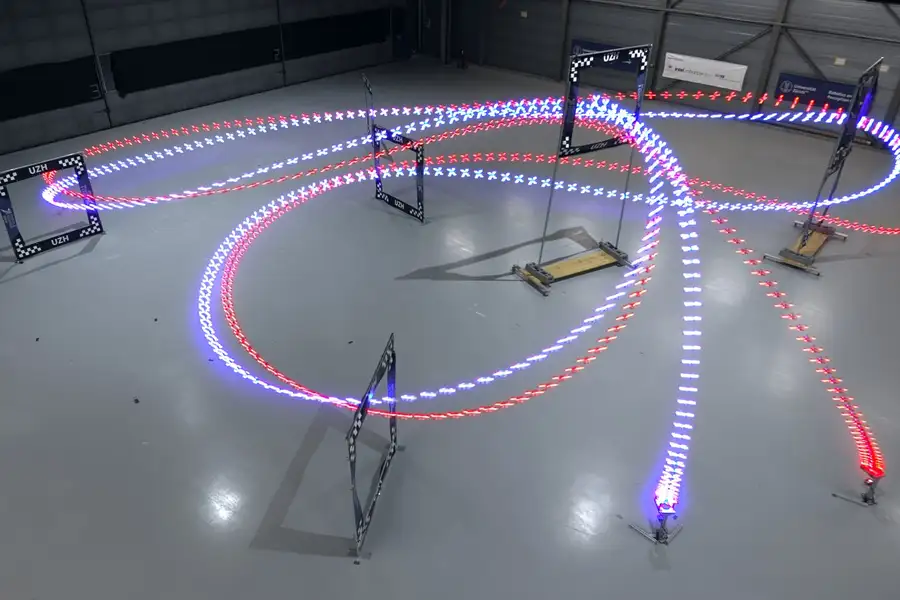A drone piloted by artificial intelligence (AI) has beaten human drone racing champions in what the designers of the AI-powered drone at the University of Zurich describe as a milestone for robotics.
“It’s much more than a gadget,” Leonard Bauersfeld told the Keystone-ATS news agency on Wednesday. The robotics researcher at the University of Zurich (UZH) was involved in the development of the drone, baptised 'Swift.'
According to the UZH researchers, this is the first time that artificial intelligence has beaten humans in a real-life situation. They presented their device on Wednesday in the scientific journal Nature.
It was already impressive when a computer beat world chess champion Gary Kasparov in 1996. It was even more so when Lee Sedol, world champion in Go, a much more complex game, was beaten by a computer in 2016, Bauersfeld recalled. “However, these performances took place in a virtual world,” he added.
In the case of a board game, all the parameters are known in advance. “Our autonomous drone, on the other hand, managed to beat humans in the real world,” the researcher enthused.
The use of this intelligent drone in races has only served to test this technology. In the future, the aim is to use such devices to search for people buried under rubble, for example.
During operations of this kind, skills similar to those required for drone racing are sought. Indeed, being able to fly with precision while avoiding obstacles is not only useful for drone racing, but also for piloting a device through doorways or into the rubble of a collapsed building, Bauersfeld explained.
Speed is also a very important element when deployed in the field. As drones have a very limited battery capacity, the faster they fly, the further they go.
The drone was not developed for military purposes, Bauersfeld said, but for civilian purposes. Other skills are needed for military drones.
The system learned to fly by itself in a virtual environment, not a real one. Flying in a simulated world prevented the drones from being destroyed in the early stages of the learning process, UZH said in a statement.
The drone took on several drone racing champions at a competition in Dübendorf (ZH), including the 2019 champion of the Drone Racing League, Alex Vanover, the 2019 champion of MultiGP Drone Racing, Thomas Bitmatta, and three-time Swiss champion Marvin Schaepper.
The human pilots took on 'Swift' after training on the circuit for a week. The AI-piloted drone won 15 of the 25 races against its human competitors. It also achieved the fastest lap time, half a second ahead of the best time achieved by the human pilots.

